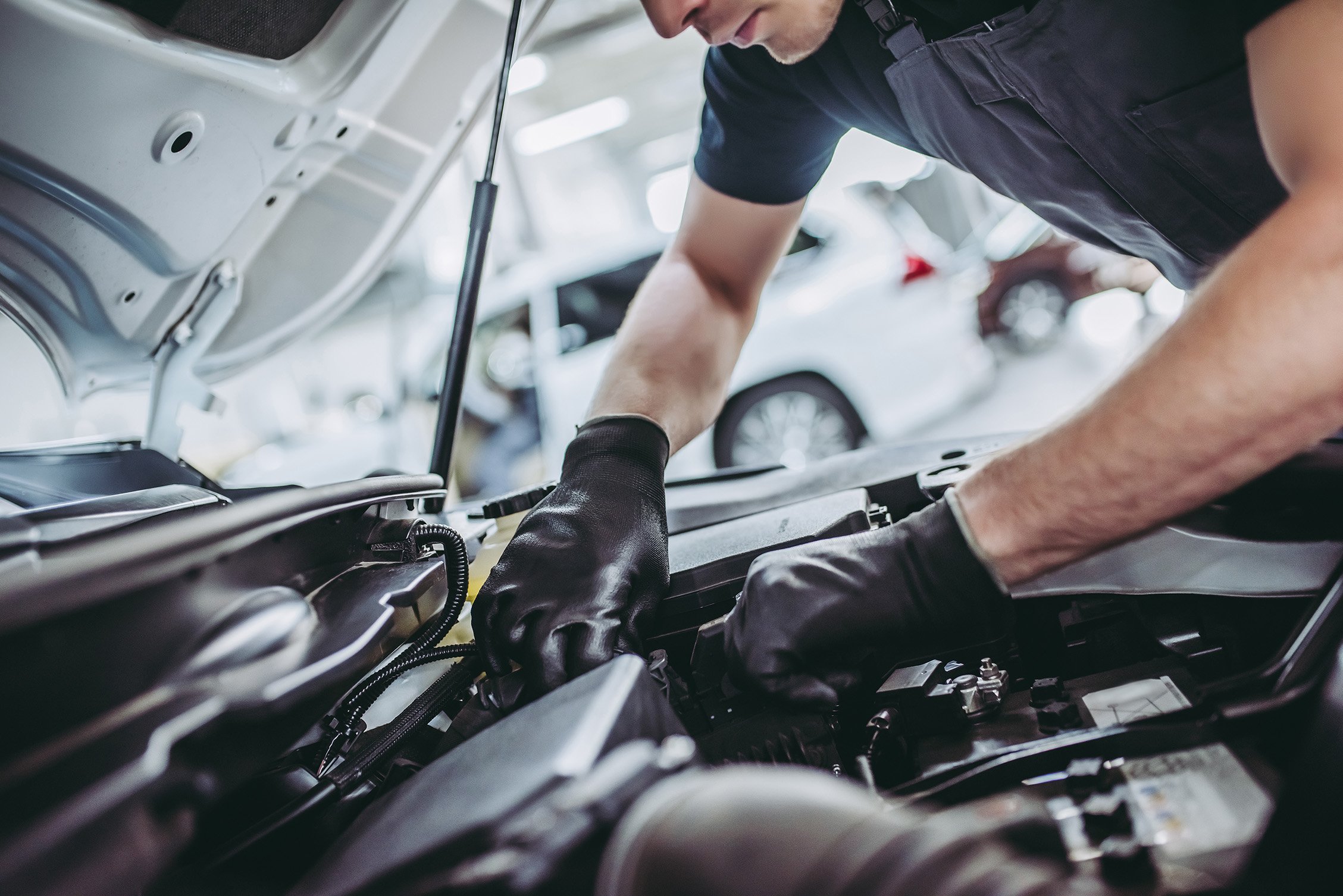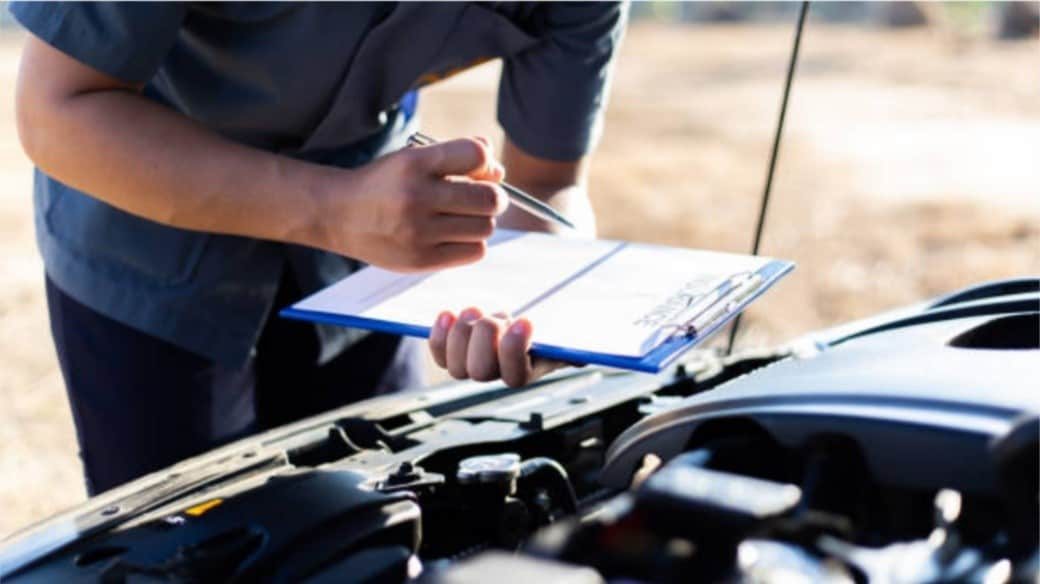All Categories
Featured
The timing belt is a vital part of your engine, responsible for synchronizing the motion of numerous engine parts, such as the crankshaft and camshaft. While the timing belt may not be something you think about often, neglecting its upkeep can lead to substantial engine damage and expensive fixings.
What Is a Timing Belt and Exactly How Does It Work? The timing belt is a rubber or composite material belt that attaches the crankshaft to the camshaft in an internal combustion engine. The camshaft regulates the opening and closing of the engine's intake and exhaust shutoffs, and it should be timed perfectly with the movement of the pistons in the engine. The timing belt makes certain that these components are in sync, permitting the engine to run efficiently.
If the timing belt stops working or ends up being broken, the camshaft and crankshaft will certainly no longer be integrated, which can cause the engine's shutoffs to strike the pistons. This causes tragic engine damage and commonly needs pricey repair work or perhaps an engine substitute.
Why Is Timing Belt Substitute Important? With time, the timing belt can wear down because of rubbing, heat, and general engine wear. While it may look like a little issue, a damaged timing belt can result in severe engine problems. Here's why timely substitute is essential:
Protecting Against Engine Damage: As stated, a damaged or slipping timing belt can trigger the engine's shutoffs and pistons to clash. This causes curved valves, damaged pistons, and in extreme instances, a total engine failing. Changing the timing belt before it breaks can stop this expensive damage.
Maintaining Engine Effectiveness: A worn-out timing belt can disrupt the synchronization of the engine elements, decreasing general engine efficiency. Replacing the belt assists maintain optimal engine feature, making certain smooth operation, boosted fuel performance, and far better performance.
Staying Clear Of Unanticipated Failure: A broken timing belt can leave you stranded on the side of the roadway, creating a major aggravation. By changing the timing belt at the recommended intervals, you can prevent the risk of an unanticipated break down, especially in the middle of a long journey or when you the very least anticipate it.
![]()
Saving Cash over time: While timing belt substitute can look like an expenditure you may wish to avoid, it's more affordable than the cost of fixing or changing a damaged engine. The replacement expense is reasonably budget-friendly contrasted to the substantial fixings needed if the timing belt breaks. Positive upkeep can conserve you countless bucks in repair work and maintain your lorry's worth.
When Should You Change the Timing Belt? The timing belt replacement routine can vary depending on your automobile's make and design. In general, a lot of manufacturers recommend replacing the timing belt every 60,000 to 100,000 miles. It's constantly best to consult your owner's guidebook or a relied on mechanic for certain recommendations for your lorry.
Indicators that your timing belt might need substitute consist of uncommon engine sounds such as ticking or grumbling, trouble beginning the engine, or a noticeable decline in engine performance. If you experience any of these signs and symptoms, it's important to have the timing belt evaluated immediately.
![]()
Conclusion. Replacing the timing belt at the advised intervals is an essential component of preserving your engine's health and making certain that your lorry runs efficiently. A broken timing belt can result in expensive repairs, engine failing, and unanticipated break downs, which can be avoided with proper upkeep. If you notice any type of signs of wear or damages, always adhere to the supplier's recommended timing belt replacement routine and seek advice from an expert technician. By keeping this critical component of your engine in good problem, you'll protect your car from expensive repairs and take pleasure in a lot more miles of stress-free driving.
What Is a Timing Belt and Exactly How Does It Work? The timing belt is a rubber or composite material belt that attaches the crankshaft to the camshaft in an internal combustion engine. The camshaft regulates the opening and closing of the engine's intake and exhaust shutoffs, and it should be timed perfectly with the movement of the pistons in the engine. The timing belt makes certain that these components are in sync, permitting the engine to run efficiently.
If the timing belt stops working or ends up being broken, the camshaft and crankshaft will certainly no longer be integrated, which can cause the engine's shutoffs to strike the pistons. This causes tragic engine damage and commonly needs pricey repair work or perhaps an engine substitute.
Why Is Timing Belt Substitute Important? With time, the timing belt can wear down because of rubbing, heat, and general engine wear. While it may look like a little issue, a damaged timing belt can result in severe engine problems. Here's why timely substitute is essential:
Protecting Against Engine Damage: As stated, a damaged or slipping timing belt can trigger the engine's shutoffs and pistons to clash. This causes curved valves, damaged pistons, and in extreme instances, a total engine failing. Changing the timing belt before it breaks can stop this expensive damage.
Maintaining Engine Effectiveness: A worn-out timing belt can disrupt the synchronization of the engine elements, decreasing general engine efficiency. Replacing the belt assists maintain optimal engine feature, making certain smooth operation, boosted fuel performance, and far better performance.
Staying Clear Of Unanticipated Failure: A broken timing belt can leave you stranded on the side of the roadway, creating a major aggravation. By changing the timing belt at the recommended intervals, you can prevent the risk of an unanticipated break down, especially in the middle of a long journey or when you the very least anticipate it.

Saving Cash over time: While timing belt substitute can look like an expenditure you may wish to avoid, it's more affordable than the cost of fixing or changing a damaged engine. The replacement expense is reasonably budget-friendly contrasted to the substantial fixings needed if the timing belt breaks. Positive upkeep can conserve you countless bucks in repair work and maintain your lorry's worth.
When Should You Change the Timing Belt? The timing belt replacement routine can vary depending on your automobile's make and design. In general, a lot of manufacturers recommend replacing the timing belt every 60,000 to 100,000 miles. It's constantly best to consult your owner's guidebook or a relied on mechanic for certain recommendations for your lorry.
Indicators that your timing belt might need substitute consist of uncommon engine sounds such as ticking or grumbling, trouble beginning the engine, or a noticeable decline in engine performance. If you experience any of these signs and symptoms, it's important to have the timing belt evaluated immediately.

Conclusion. Replacing the timing belt at the advised intervals is an essential component of preserving your engine's health and making certain that your lorry runs efficiently. A broken timing belt can result in expensive repairs, engine failing, and unanticipated break downs, which can be avoided with proper upkeep. If you notice any type of signs of wear or damages, always adhere to the supplier's recommended timing belt replacement routine and seek advice from an expert technician. By keeping this critical component of your engine in good problem, you'll protect your car from expensive repairs and take pleasure in a lot more miles of stress-free driving.
Latest Posts
Experience the Style of Hardwood Flooring with Carpet Interiors Floor & Home
Published Apr 19, 25
1 min read
Discovering the Conveniences of WyHy Share Interest-bearing Account
Published Apr 19, 25
1 min read
Courtside Snack Shack: Quick Bites for Sports Lovers
Published Apr 19, 25
1 min read
More
Latest Posts
Experience the Style of Hardwood Flooring with Carpet Interiors Floor & Home
Published Apr 19, 25
1 min read
Discovering the Conveniences of WyHy Share Interest-bearing Account
Published Apr 19, 25
1 min read
Courtside Snack Shack: Quick Bites for Sports Lovers
Published Apr 19, 25
1 min read